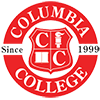Columbia College - Virginia is a private for-profit vocational college located in Virginia. Here is a detailed introduction:
Basic Information
Established in 1999.
Location: The main campus is located in Vienna, Virginia, and there are also campuses in Centerville and Silver Spring, Maryland. The Vienna campus is about 20 minutes away from Washington, DC by car, with a superior geographical location and convenient transportation.
School size: relatively small, with a total of about 650 students.
President: The current president is Dr. Richard King.
Professional settings
The college offers 8 associate degrees, 2 bachelor's degrees and 9 certificate courses, covering computer and information science and support services, English language and literature, health professions and related projects.
Teaching characteristics
Practical teaching: Focus on practical operations, provide students with internships and practical opportunities through cooperation with enterprises, so that students can accumulate experience in a real working environment and improve their employment competitiveness.
Small class teaching: small class teaching mode is adopted, with a teacher-student ratio of 11:1, ensuring that every student can get full attention and guidance from the teacher, which is conducive to students to better master knowledge and skills.
Flexible course arrangement: flexible course setting, with full-time, part-time and online courses and other options to meet the learning needs and time arrangements of different students.
Accreditation
Accredited by the Accrediting Council for Independent Colleges and Schools (ACICS), which is also recognized by the U.S. Department of Education and the Council for Higher Education Accreditation (CHEA).
Accredited by the Commission on Occupational Education (COE) to ensure the quality and standards of its educational programs.
Accredited by the State of Virginia State Board of Higher Education (SCHEV), it is legally allowed to operate in Virginia.
Campus Life
Student Composition: Students come from different backgrounds and age groups, including 46% males and 54% females, 34% Asian, 33% non-resident aliens, 20% white, 13% Hispanic/Latino, 1% African American, etc.
Campus Facilities: The campus is equipped with basic facilities such as libraries to provide students with places for study and research.
Student Services: The school provides students with employment services, academic/career counseling services, and placement services for those who complete their studies, etc., to help students better plan their future career development and smoothly enter the workplace.
Club Activities: The school has a variety of clubs and organizations, and students can participate according to their interests and hobbies to enrich their extracurricular life and expand their interpersonal network.
Study abroad expenses
Tuition fees: Tuition fees vary for different courses, please consult the school's admissions department for details.
Other expenses: including book fees, accommodation fees, meal fees, etc. The school has some scholarships and grants, and 38% of undergraduates can receive scholarships or grants with an average of $3,916.
-

Harvard University
-

Massachusetts Institute of Technology
-

South University
-

University of West Georgia
-

Stanford University
-

Northwest Nazarene University
-

Hawaii Pacific University
-

Shorter University
-

Nova Southeastern University
-

Saint Leo University
-

Mesoamerican University
-

Istmo University
-

Mariano Galvez University of Guatemala
-

Regional University of Guatemala
-

Galileo University
-

Francisco Marroquín University
-

Rafael Landívar University
-

University of the Valley of Guatemala
-

University of San Carlos of Guatemala
-

Technological Institute of Tlaxcala Plateau
-

Golfo University
-

Technological University of South Sonora
-

Technological University of Huejotzingo
-

Tizimín Institute of Technology
-

Chilpancingo Institute of Technology

